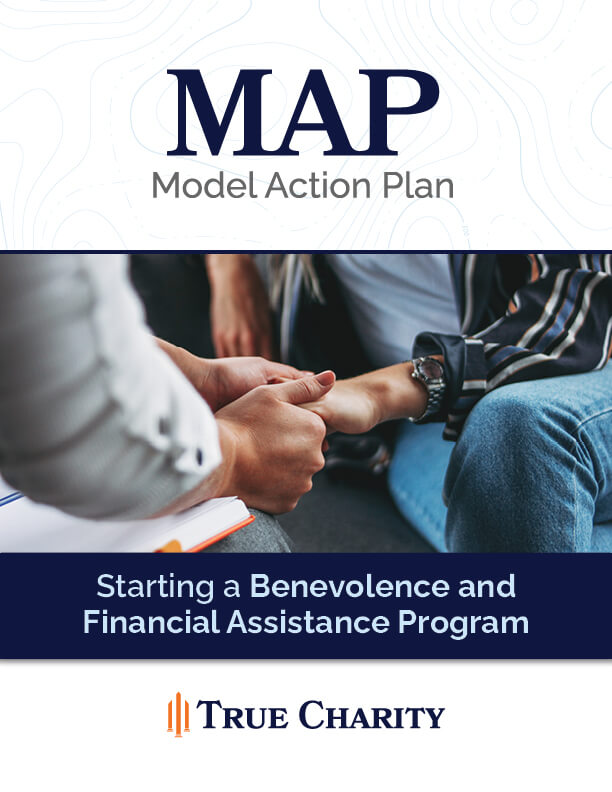While poverty is complex and there are no easy answers, some charitable program models work better than others.
We are grateful for our partners and network members around the country who have made their program models and tools available so that you don’t have to reinvent the wheel.
A Model Action Plan (MAP) is a package of detailed guidance to help you implement a specific innovative program model that works.
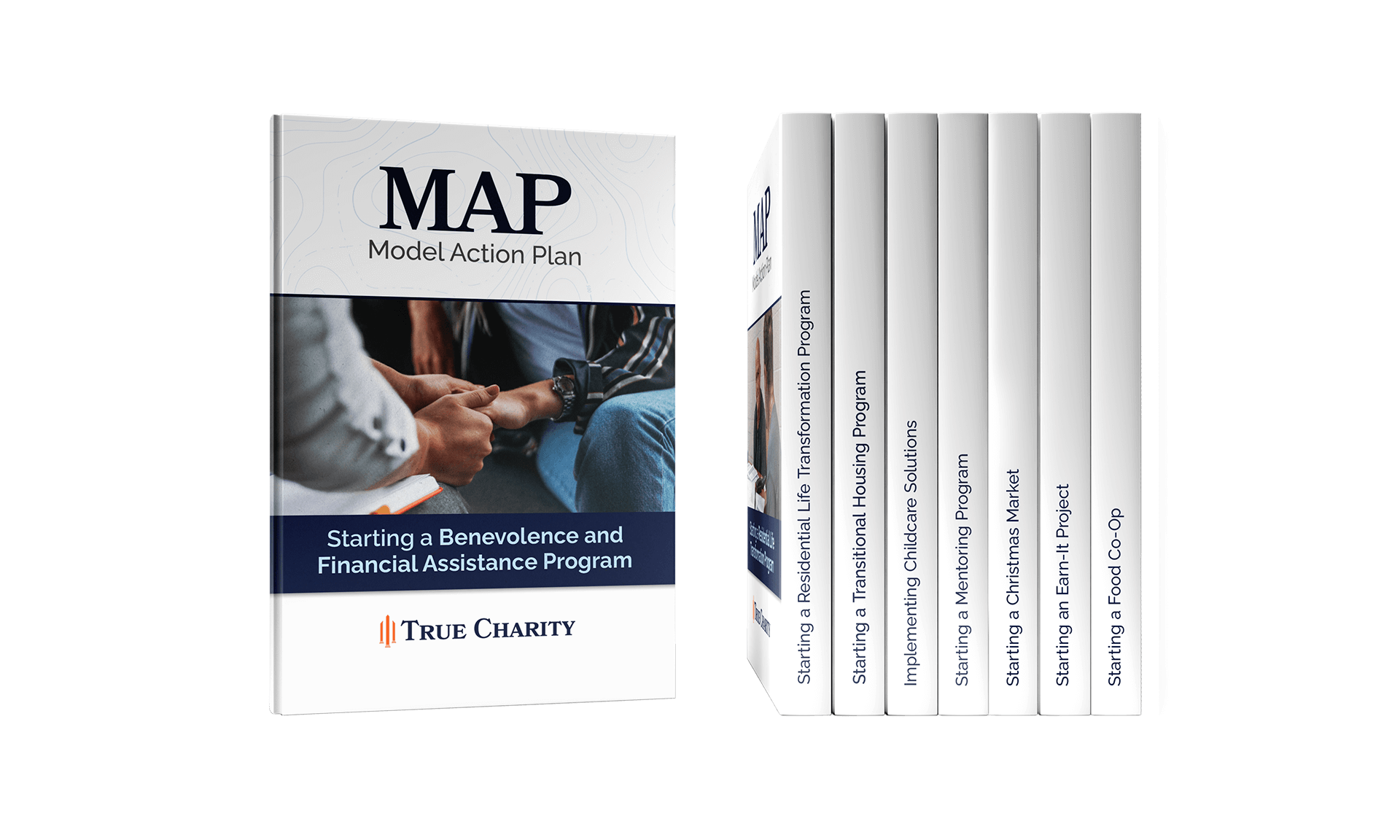
MAP’s are not designed as a copy-paste program plan, but as a choose your own adventure tool to help you craft a program that makes sense in your context.
Each MAP includes the following:
Instructional Videos
Such as:
• Brief Overview Video (Perfect for deciding if the model is right for you and sharing the vision with staff, board, and donors)
• Example Video (See how the model works in practice)
• Common Questions Video (A long form, deep dive into variations, hurdles, questions, and how to begin)
Tools
This library of supporting documents used by real organizations will help you implement the MAP. Operational documents for current MAP’s include:
• outcomes tracking spreadsheets
• flyers
• schedules
• volunteer job descriptions
• membership agreements
• program policies
Action Plan
This 10-30 page document provides you with a step-by-step guide to planning and executing your program. The format creates multiple options at each step, based on a range of best practices from other organizations. It is available in PDF for portability, and MS Word format so you can modify it as a working document.
Already a True Charity Network member?
To gain access to these Model Action Plans, along with loads of other benefits, join the True Charity Network.

Interested?
Check out some of our available MAPs!
Benevolence & Financial Assistance
Sneak Peek:
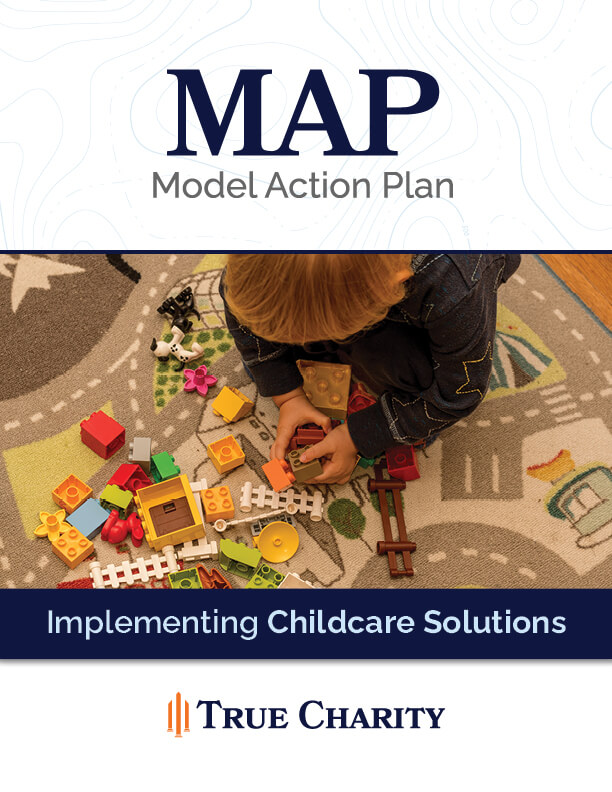 Childcare Solutions
Childcare Solutions
Annual childcare costs can reach almost $20,000 per child in some communities, making quality childcare out of reach for families walking through poverty. These families may feel that their only option is to use services often fraught with worrisome conditions and limited availability.
But there are other innovative alternatives to sub-par care, and the Childcare Solutions Model Action Plan (MAP) presents them, with all the tools to implement them effectively.
Sneak Peek:
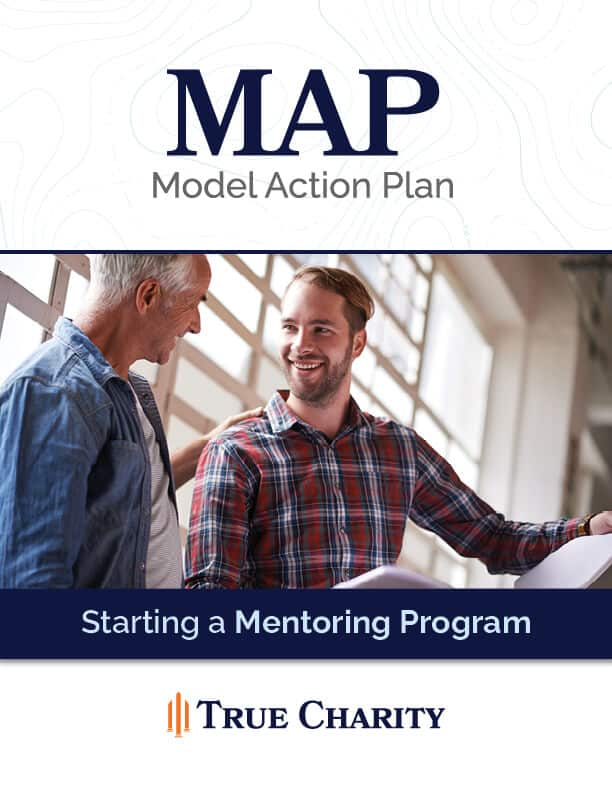 Mentoring Program
Mentoring Program
Most people in poverty simply need others who will support them, especially in their efforts to free themselves from the bonds of dependency. An effective mentoring program can help facilitate this needed support, lifting the poor toward a more flourishing life.
Deciding on the type, scale, and execution of a mentoring program can be daunting, but it does not have to be! Our Mentoring MAP provides all the guidance and helpful tools you need to get started.
Sneak Peek:
 Food Co-op
Food Co-op
Food distribution is one of the most common types of charity in the United States. How can we make it more dignified, relational, and developmental?
A food co-op is a membership-based group where people who struggle to pay for food can contribute their own resources toward the food they receive. Co-ops focus on dignity and relationships, things we know are essential for every human being, and are often overlooked in more common ways of helping those in poverty.
Sneak Peek:
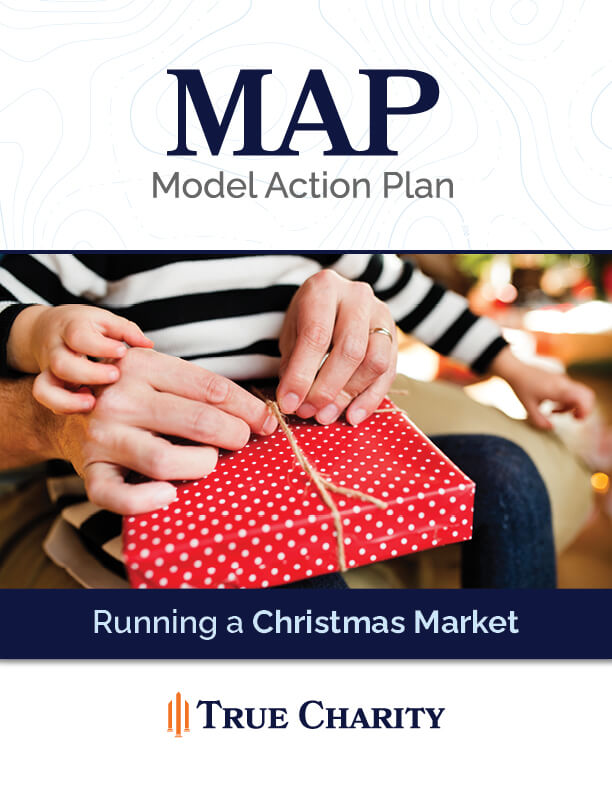 Christmas Market
Christmas Market
Though traditional toy giveaways are sure to yield some smiling young faces, they can also rob parents of the pride of providing gifts for their children.
A Christmas Market, sometimes called “Affordable Christmas,” focuses on dignity and relationship— shoppers choose and pay for highly-discounted items in a joyful, comfortable environment that fosters community.
Sneak Peek:
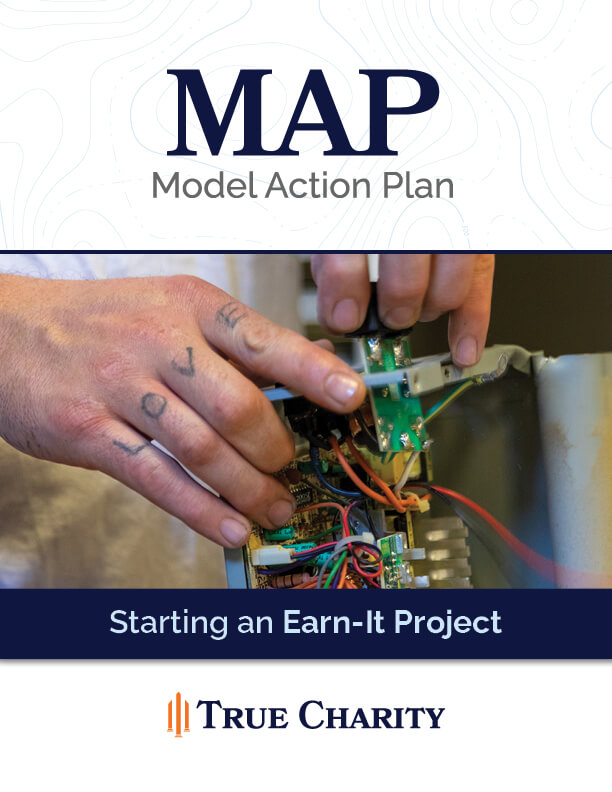 Earn-It Project
Earn-It Project
We all know that resources alone will never solve poverty. Relationships and work are essential to helping an individual break cycles of brokenness. When someone does have a material need like food or clothing, though, how can we help meet that need in a dignified way?
Informal employment through an “Earn-It” Project allows individuals to use their gifts and skills to provide for their families’ basic needs. Earn-it models can take a variety of forms, from bracelet-making to mattress-recycling to thrift stores.
Sneak Peek:
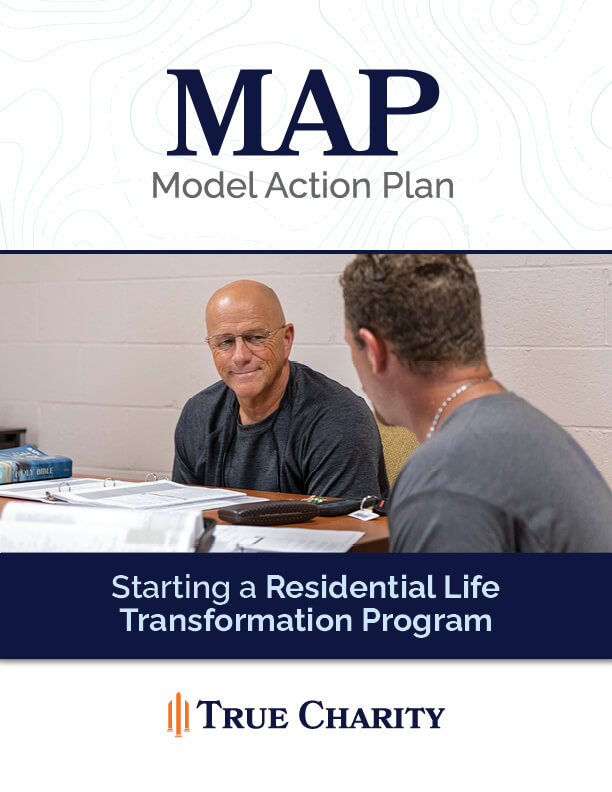 Residential Life Transformation
Residential Life Transformation
Differing paths may be presented to individuals in poverty as they journey toward self-sufficiency. One such path may include the opportunity to commit to a residential life transformation (RLT) program.
RLT programs often include two to three stages during which greater stability and independence are encouraged as the individual progresses through personal, spiritual, and professional development.
Sneak Peek:
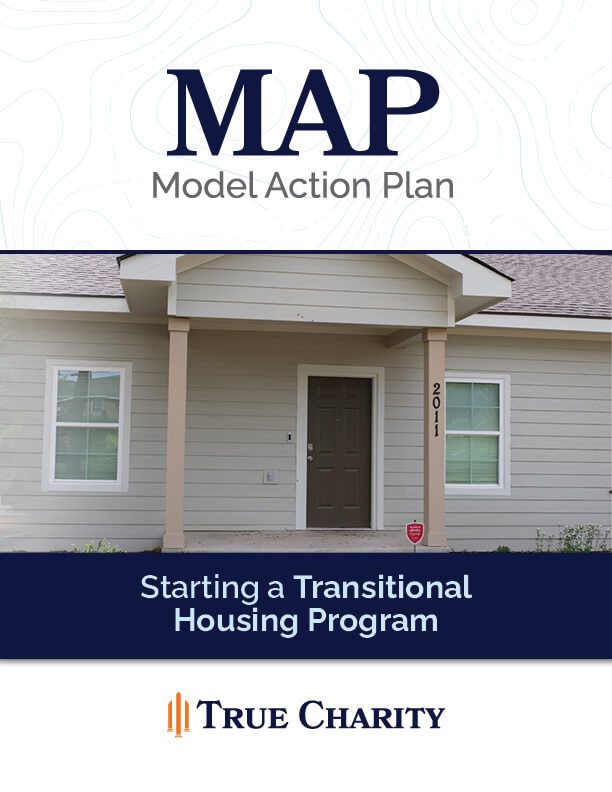 Transitional Housing
Transitional Housing
Often, as we walk with individuals and families along the path out of poverty, they find that a season of transition is necessary.
This time of creating stability might involve establishing good habits, paying down debts, forming healthy relationships, and seeking better employment.
A good transitional housing program can provide the community, accountability, and financial margin to facilitate that growth.
Sneak Peek:

